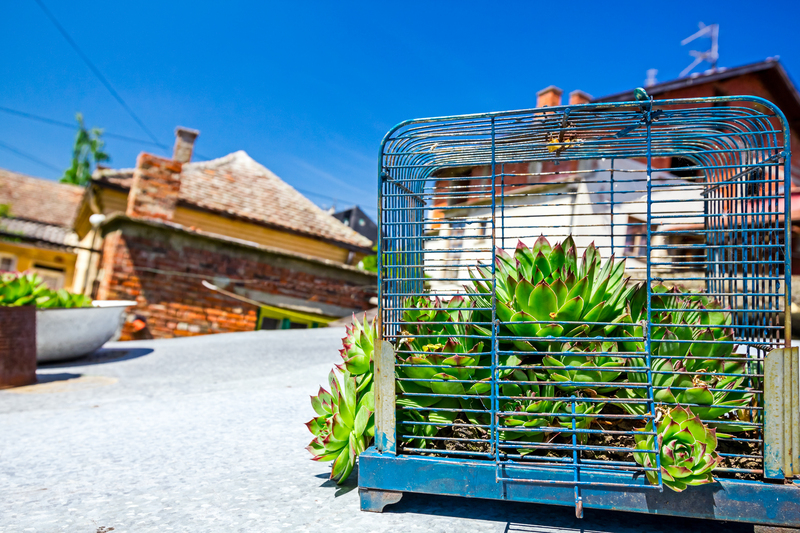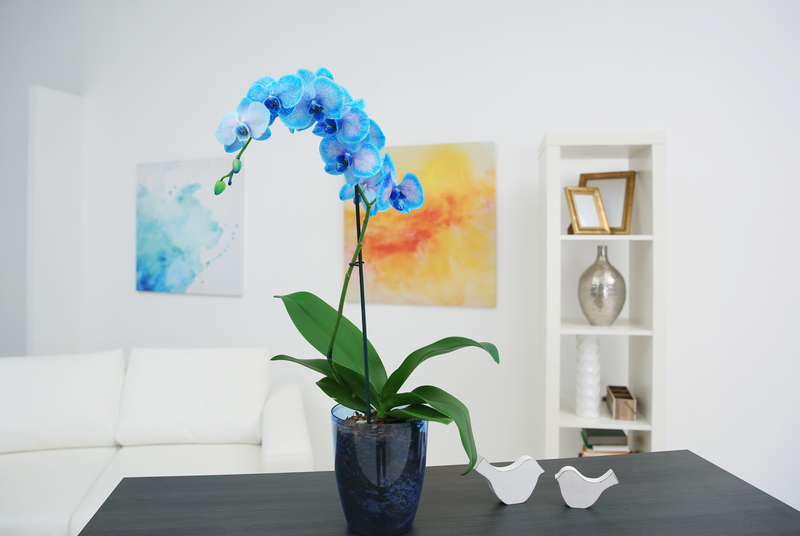Begin with Confidence: 9 Essential Tips for New Gardeners
Posted on 14/09/2025
Begin with Confidence: 9 Essential Tips for New Gardeners
Are you dreaming of lush greenery, vibrant flowers, and home-grown vegetables right from your backyard? Whether you're nurturing a few potted plants on a balcony or plotting a transformation of your yard, gardening can seem overwhelming at first. But beginning with confidence is possible! With the right knowledge and attitude, even new gardeners can flourish. In this comprehensive guide, we unveil 9 essential tips for new gardeners that will set you up for sustainable and rewarding success.
1. Understand Your Gardening Space
Before you plant a single seed, take the time to truly get to know your garden area. Every space has its unique microclimate and soil dynamics, so starting with a clear understanding is crucial.
- Assess sunlight levels: Observe which areas receive morning or afternoon sun and how many hours of direct light they get.
- Test your soil: Use a simple home soil test kit to check for pH level and nutrients. Knowing if your soil is sandy, clay, or loamy helps you select the right plants.
- Measure your space: Sketch a basic layout including dimensions, sun patterns, and notable features.
Plants thrive when matched to their environment. Choosing the right plants for your specific conditions is the first step toward gardening confidence!

2. Start Small & Focused
It's easy to get carried away with ambitious plans, but for beginner gardeners, smaller is better. A well-maintained, compact garden outshines a sprawling, unattended mess.
- Pick a manageable area, such as a 4'x4' raised bed or a cluster of containers.
- Select just a few types of plants you love, and master their care before adding more.
- Grow with your experience, slowly expanding as your skills and confidence bloom.
With focus, you'll avoid feeling overwhelmed and build up essential gardening habits more comfortably.
3. Choose Easy, Resilient Plants First
The secret to enjoyable gardening? Early wins! Opt for low-maintenance, beginner-friendly plants that thrive with minimal fuss.
- Herbs like basil, mint, and parsley are fast-growing and forgiving.
- Leafy greens such as lettuce, spinach, and kale can handle partial shade and are quick to harvest.
- Flowers like marigolds, sunflowers, and zinnias are robust and brighten any garden.
Starting with resilient varieties boosts your gardening success rate and builds confidence for future challenges.
4. Learn the Basics of Good Soil Preparation
Healthy soil is the foundation of every thriving garden. Give your plants the best start by improving your soil structure and fertility:
- Loosen compacted ground: Use a garden fork or spade to break up soil, improving drainage and root growth.
- Add organic matter, such as compost, aged manure, or leaf mold, to enrich poor soils.
- Mulch after planting: A 2-3 inch layer of mulch helps retain moisture, suppress weeds, and regulate soil temperature.
Great soil means happy, productive plants--and a more satisfying gardening experience for beginners.
5. Master Watering Techniques
Proper watering is one of the most essential gardening tips for beginners. Overwatering and underwatering are two of the most common mistakes.
- Check soil moisture regularly: Stick your finger an inch below the surface. If it feels dry, it's time to water.
- Water deeply and infrequently: Soak the root zone thoroughly rather than shallow sprinkling. This encourages deeper, stronger root systems.
- Morning is best: Watering early helps minimize evaporation and allows leaves to dry, reducing disease risk.
Consistent, mindful watering is the secret to strong, resilient plants.
6. Feed Your Garden Wisely
Just like people, plants need balanced nutrition. Your beginner's gardening guide should include some basic feeding practices:
- Choose an appropriate fertilizer: For vegetables, a balanced all-purpose (10-10-10) fertilizer works well. Flowers may need higher phosphorus (the middle number) for better blooms.
- Follow label directions: More is not always better. Over-fertilizing can damage roots and discourage growth.
- Compost regularly: Fresh compost acts as a slow-release fertilizer and improves soil structure naturally.
Healthy, well-fed plants are more resistant to pests, disease, and weather stresses.
7. Get to Know Local Pests & Beneficials
Gardening isn't just about plants--it's a whole ecosystem! Beginner gardeners should spend some time recognizing regional common insects, pests, and their natural predators.
- Identify the good bugs: Ladybugs, lacewings, bees, and butterflies are your allies.
- Watch out for troublemakers: Aphids, slugs, and caterpillars can harm plants quickly if left unchecked.
- Encourage balance: Avoid broad-spectrum pesticides. Instead, hand-pick pests or use targeted, organic solutions like neem oil or diatomaceous earth when needed.
Knowledge about your garden's ecosystem leads to healthier, more sustainable growing--an essential part of gardening confidence for newbies.
8. Practice Patience & Observe Closely
A common trait of the most successful gardeners is observation. Plants communicate--through growth habits, leaf color, and even scent--when they are thriving or stressed.
- Walk your garden daily: Notice new growth, wilting, or pests--small issues are easier to fix early.
- Journal your progress: Note what works and what doesn't each season for ongoing improvement.
- Don't expect perfection: All experienced gardeners learn through trial and error. Embrace learning as part of the fun!
Patience is your most powerful garden tool. In time, you'll learn to "read" your plants and garden's unique needs.
9. Connect with the Gardening Community
No gardener flourishes alone! Thanks to the internet and local organizations, you can access a wealth of support and resources:
- Join local gardening clubs or online forums to share questions, photos, and progress.
- Read regional gardening blogs for planting calendars and troubleshooting guides tailored to your climate.
- Take classes or workshops: Cooperative Extension offices, garden centers, and botanical gardens often offer affordable hands-on learning.
The more you engage with others, the more your gardening knowledge--and enjoyment--will grow.
Bonus: Quick Tips for Gardening Success
- Label your plants--it's easy to forget what you've planted, especially when everything is just sprouting!
- Invest in a few essential tools: A trowel, hand fork, pruners, gloves, and a sturdy watering can are a great start for any beginner gardener.
- Celebrating every milestone--from seedlings to your first harvest--keeps you motivated and confident.

Frequently Asked Questions for New Gardeners
What are the easiest vegetables to grow for beginners?
Leafy greens like lettuce or spinach, radishes, and bush beans are some of the best starter crops for beginner gardeners. They germinate quickly and require little maintenance.
How do I know if I am watering my plants correctly?
The best way is to check soil moisture before and after watering. The top inch of soil should stay moist, not soggy, for most vegetables and herbs. Wilting, yellowing, or browning leaves may suggest under- or over-watering.
When should a new gardener start planting?
The ideal timing varies by region and plant type. As a rule of thumb, most gardeners begin planting after the last frost date in spring. Check your local extension service for specific recommendations.
Do I need special soil for container gardening?
Yes. Always choose a high-quality potting mix for containers rather than using garden soil, which is too dense and can cause drainage issues.
Conclusion: Start Gardening with Confidence
Gardening is a journey--not a destination. Every master gardener started out as a beginner, learning from nature's lessons and personal mistakes. By following these essential tips for new gardeners--from careful planning to patient observation--you'll build a resilient, rewarding garden and develop skills that will last a lifetime.
Embrace the process, stay curious, and most importantly, enjoy every moment in your garden. Happy growing!
Latest Posts
Solutions for Soothing the Winds in Your Garden Sanctuary
From Lawn to Lounge: Designing Amazing Garden Seating Spaces
Nature's Playground: Building a Child-Friendly Garden Haven

